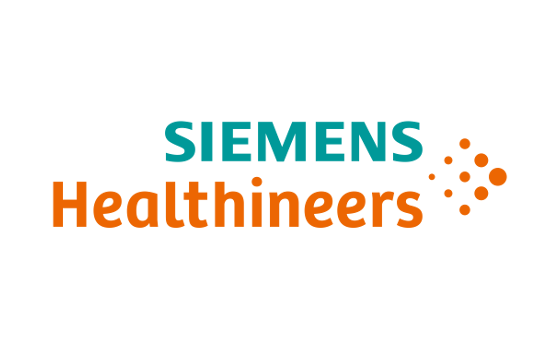 With its teamplay myCare Companion software, the company is bringing a new and flexible telemedicine solution to the market that enables remote care for patients with chronic diseases. The teamplay myCare Companion allows healthcare providers to design their own telemedicine programs and flexibly adapt the underlying technology to their needs. The solution is initially used for the care of patients with chronic heart failure. It is in use at the German Heart and Diabetes Center in Bad Oeynhausen under the name "HerzConnect".
With its teamplay myCare Companion software, the company is bringing a new and flexible telemedicine solution to the market that enables remote care for patients with chronic diseases. The teamplay myCare Companion allows healthcare providers to design their own telemedicine programs and flexibly adapt the underlying technology to their needs. The solution is initially used for the care of patients with chronic heart failure. It is in use at the German Heart and Diabetes Center in Bad Oeynhausen under the name "HerzConnect".
A further use for the program during the COVID-19 pandemic: The occupational health and safety medical center at Mannheim University Hospital uses teamplay myCare Companions' documentation- and communication components as a "Coronavirus diary" for clinical personnel in line with the rules from the Robert Koch Institute. The staff records their health status every day and medical officers can respond quickly to any changes. "Previously we used to receive piles of diaries in paper form, but now everything is nicely arranged for software to analyze," says medical officer Dr. Margit Eisenbarth. "Employees can enter their data conveniently via an app or Website. That saves them valuable time, and we get an immediate overview."
"Thanks to state-of-the-art telemedicine solutions like teamplay myCare Companion, a large number of patients can be cared for with a relatively low use of employee resources, and the number of unscheduled hospital visits can be reduced," says Wido Menhardt, Executive Vice President Digital Health at Siemens Healthineers. "That can substantially lower costs and is also conducive to better quality of life for chronically ill patients. Additional uses for the program that make life a little easier for medical officers and clinical employees in the current situation show just how flexible this software is."
Teamplay myCare Companion basically consists of two components: an intuitive smartphone app for patients and a special workstation for medical care providers. Patients use the app to report their health status, wellness, the medications they’re taking, and their vital parameters to the nursing staff. Among other things, the program helps employees quickly identify patients whose state of health may have worsened. The attending doctors can then decide whether a scheduled hospital visit should be moved forward or if more intensive remote medical care would be beneficial.
Siemens Healthineers not only supplies the software but can also support healthcare providers with the design, installation, and operation of their own telemedicine center. In addition, the company can assist with procurement of the measuring devices needed to monitor patients’ vital parameters at home (such as scales and blood pressure devices).
This telemedicine solution was developed in a partnership between Siemens Healthineers, the Austrian Institute of Technology (AIT), and TELBIOMED Medizintechnik und IT Service GmbH in Austria. The partners agreed to set up a global sales and development partnership at the beginning of 2020.
About Siemens Healthineers
Siemens Healthineers AG (listed in Frankfurt, Germany: SHL) is shaping the future of Healthcare. As a leading medical technology company headquartered in Erlangen, Germany, Siemens Healthineers enables healthcare providers worldwide through its regional companies to increase value by empowering them on their journey towards expanding precision medicine, transforming care delivery, improving the patient experience, and digitalizing healthcare. Siemens Healthineers is continuously developing its product and service portfolio, with AI-supported applications and digital offerings that play an increasingly important role in the next generation of medical technology. These new applications will enhance the company’s foundation in in-vitro diagnostic, image-guided therapy, and in-vivo diagnostics. Siemens Healthineers also provides a range of services and solutions to enhance healthcare providers ability to provide high-quality, efficient care to patients. In fiscal 2019, which ended on September 30, 2019, Siemens Healthineers, which has approximately 52,000 employees worldwide, generated revenue of €14.5 billion and adjusted profit of €2.5 billion.